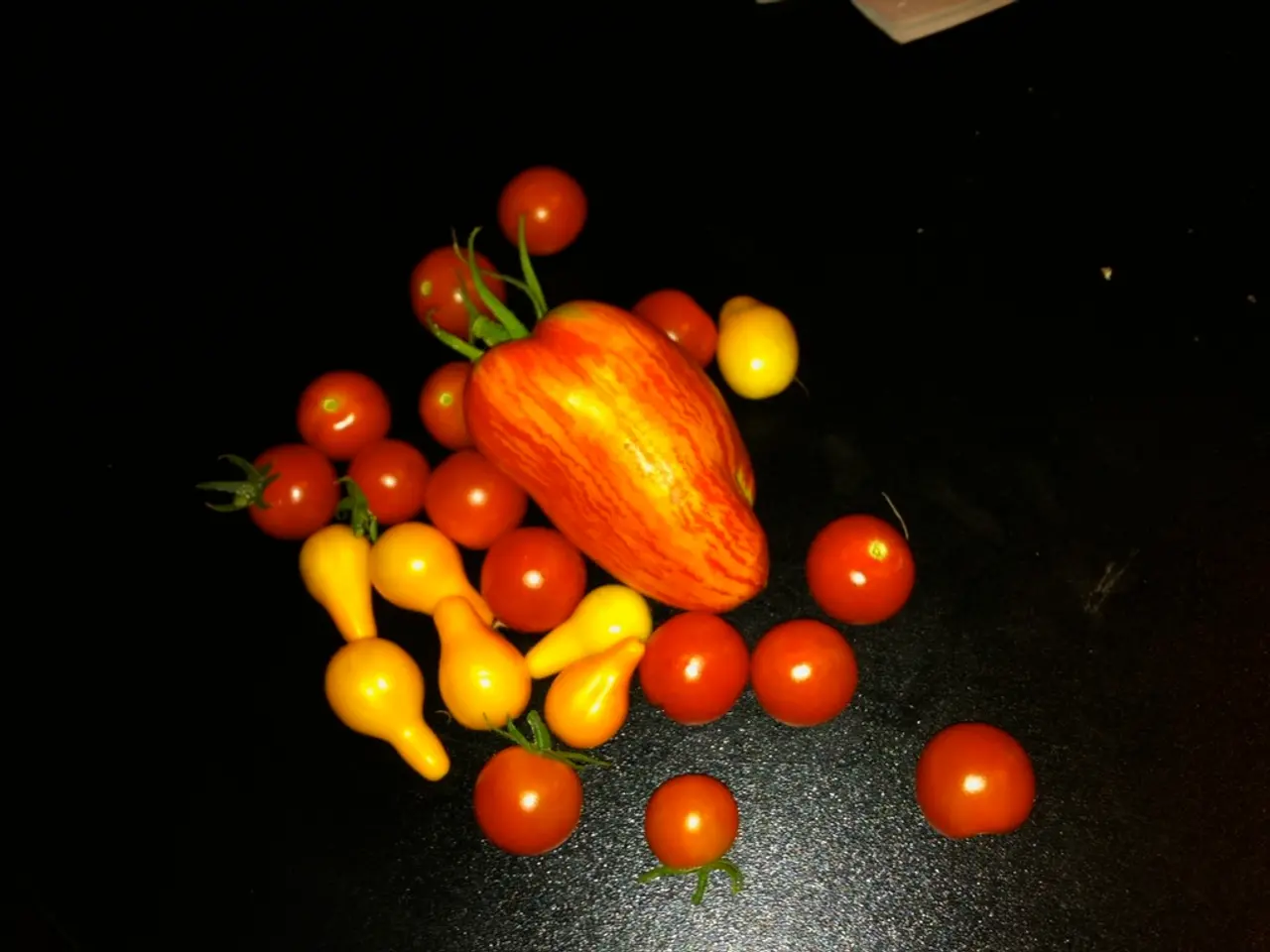Reversing the Value-Added Tax (VAT) policy for expanded product categories is being planned by Romania.
Romania is set to discuss the introduction of a reverse charge on Value Added Tax (VAT) in the fruit and vegetable sector with the European Commission in September, according to Minister Alexandru Nazare. This move is aimed at reducing VAT evasion, particularly in areas with a high risk.
The European Commission has not granted Romania a permit for a generalized reverse VAT charge, but has indicated a potential derogation for vegetables and fruits next year. This derogation would allow Romania to continue using the special VAT charging regime, which is already in effect for some categories of goods, including cereals, electronics, energy, timber and wood, and green certificates.
The discussion with the European Commission is scheduled for September, following the announcement made by Minister Nazare to Profit.ro. If approved, the reverse VAT charge on fruits and vegetables would be an addition to the existing regime, and not limited to this sector. Other sectors may also be subject to this reverse VAT charge in the future.
It is important to note that the new VAT regulations in the European Union will not allow the enforcement of the new reverse VAT charge regime before 2030. However, a special VAT charging regime in particular sectors can be enforced as early as next year, if Romania receives an EC derogation.
According to the European Commission's estimates, Romania has the widest VAT gap in the European Union, with a VAT gap of 30.6% for 2022, down from 34.8% in 2021 (RON 41.8 billion or EUR 8 billion). The reverse VAT charge mechanism in Romania is designed to help address this issue.
The Ministry of Finance is planning to introduce the reverse charge on VAT in the fruit and vegetable sector, with the hope of reducing VAT fraud and boosting tax revenue. The implementation of this measure would align Romania with other EU member states that have already implemented similar measures to combat VAT evasion.
The reverse VAT charge mechanism works by shifting the responsibility of paying VAT from the supplier to the customer. This makes it more difficult for VAT fraud to occur, as the customer is required to prove that they have paid the VAT to the government.
In conclusion, Romania is taking steps to address its high VAT gap by seeking approval for a reverse VAT charge in the fruit and vegetable sector. If approved, this measure could help reduce VAT evasion and boost tax revenue, bringing Romania in line with other EU member states. The discussion with the European Commission is scheduled for September, and the decision will be closely watched by tax authorities and businesses in Romania.
Read also:
- Understanding Hemorrhagic Gastroenteritis: Key Facts
- Stopping Osteoporosis Treatment: Timeline Considerations
- Trump's Policies: Tariffs, AI, Surveillance, and Possible Martial Law
- Expanded Community Health Involvement by CK Birla Hospitals, Jaipur, Maintained Through Consistent Outreach Programs Across Rajasthan








